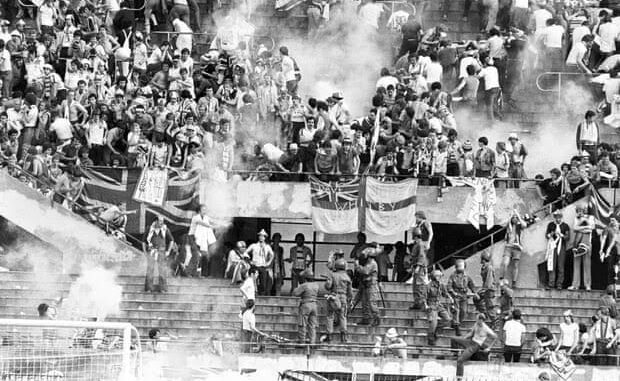
When England Fans Ruined Their Match Against Belgium 40 Years Ago
In the history of English football, there have been countless memorable matches, both for triumphs and tribulations. However, one game that remains etched in infamy occurred 40 years ago, when unruly behavior by England fans overshadowed a crucial match against Belgium during the 1984 British Home Championship. What was intended to be a competitive international fixture turned into a spectacle marred by violence, unruly conduct, and crowd trouble that stained England’s reputation on the international stage.
The fixture between England and Belgium took place on February 29, 1984, as part of a scheduled friendly that was meant to strengthen international football ties. England was facing one of the most talented Belgian sides of that era, a team with a growing reputation in European football. Despite both teams preparing for a hard-fought game, the match would become notorious not for the action on the pitch, but for the actions of the England supporters off it.
From the onset, tensions in the stands were palpable. English football fans, already dealing with a reputation for hooliganism during the 1970s and early 1980s, brought their troubles to Brussels. Sections of the crowd became increasingly unruly, and by halftime, the disorder escalated into outright chaos. Reports of English fans throwing bottles, lighting flares, and engaging in violent clashes with Belgian supporters spread rapidly, leading to a break in the game.
The situation worsened when fans began to invade the pitch, halting the match as security forces attempted to regain control. The ensuing chaos left players and match officials visibly shaken, and the disruption led to calls for the match to be abandoned.
Belgium, known for its welcoming football culture, had hosted several international matches without such incidents. The behavior of England’s fans, however, led to widespread outrage, both from the Belgian football authorities and the public. The game had not only been interrupted but had also left a sour taste in what should have been a friendly contest between two nations. Belgian newspapers criticized the English fans for tarnishing the spirit of football, and the Belgian FA demanded answers from their English counterparts.
The incident in Belgium was not an isolated one. During the 1980s, English football was plagued by hooliganism, with matches often being overshadowed by crowd violence, both at home and abroad. The events in Brussels 40 years ago were part of a broader trend that eventually forced European football’s governing bodies, including UEFA and FIFA, to take drastic action.
Following the match, English authorities faced increasing pressure to tackle the hooliganism problem. UEFA issued warnings to the Football Association (FA), making it clear that further incidents could lead to sanctions, including bans from international competitions. This foreshadowed the more severe punishments that would come just a year later, when the Heysel Stadium disaster in 1985 led to the expulsion of English clubs from European competitions for five years.
The match against Belgium served as one of the wake-up calls that English football needed to address the growing issue of hooliganism. The 1984 event, alongside others from that period, ultimately forced the government and football authorities to introduce tougher measures, including increased police presence at matches, all-seater stadiums, and lifetime bans for fans involved in violence.
These reforms were not immediately effective, but they paved the way for long-term changes in how football matches were policed and the role of fan behavior in shaping the sport. The improvements would eventually lead to a cleaner, more family-friendly atmosphere at football matches by the 1990s, but the scars of incidents like the Belgium match remained.
Forty years on, the England vs. Belgium match of 1984 stands as a stark reminder of a darker era in football. While the English national team has enjoyed countless victories and moments of glory since then, the behavior of a minority of fans at that time cast a long shadow over the sport. Today, English football enjoys a much-improved reputation, but the events of that fateful match are a cautionary tale about the lasting impact of hooliganism on the beautiful game.
Read more on;https://sportupdates.co.uk

Leave a Reply